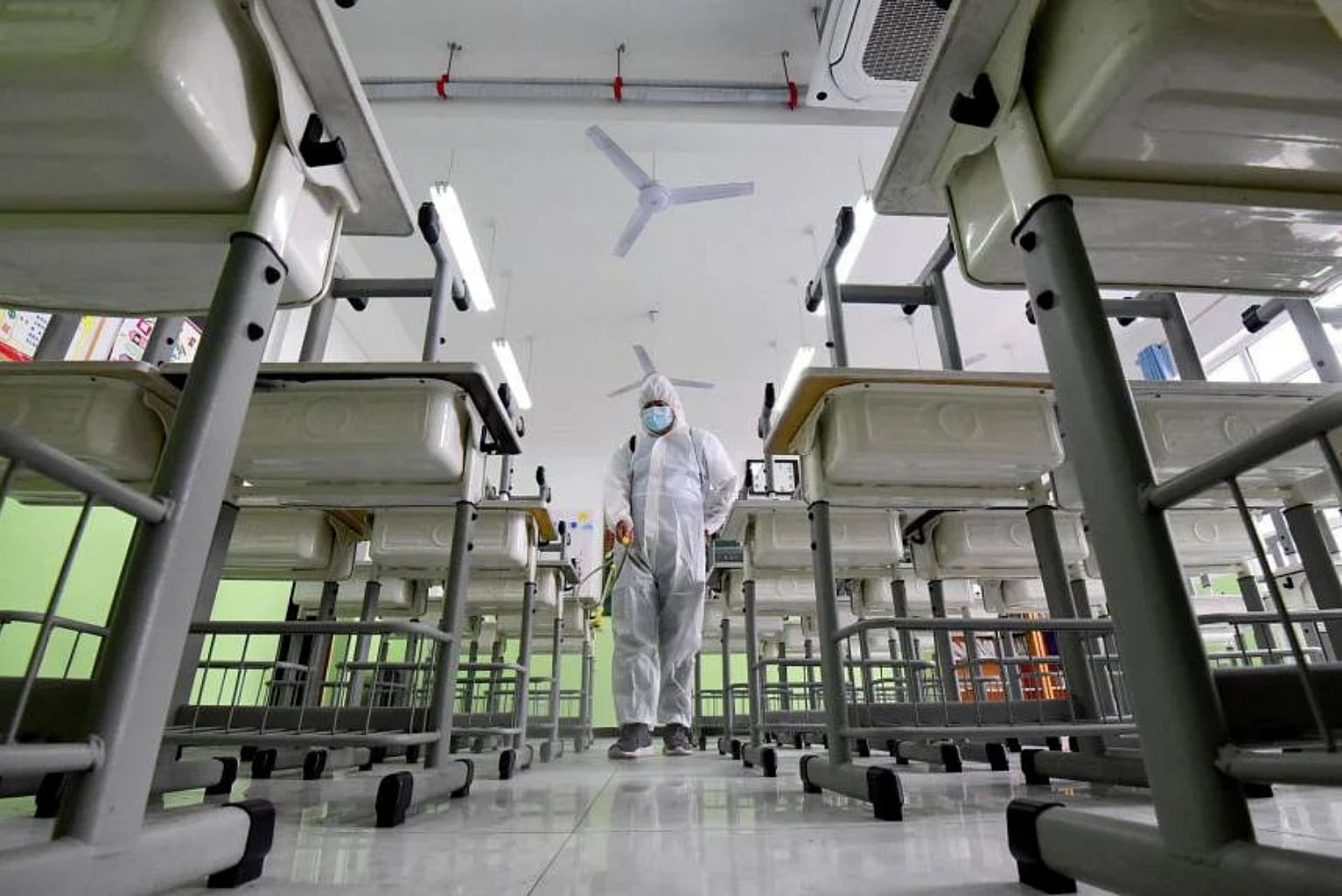BEIJING (REUTERS, BLOOMBERG) - China’s Guangzhou on Wednesday (Aug 31) imposed Covid-19 curbs in parts of the city, joining Shenzhen in battling local flare-ups, deepening uncertainty over commerce and daily life in two of southern China’s most economically vibrant metropolises.
Several of China’s biggest cities have stepped up their Covid-19 restrictions this week, affecting the activities of tens of millions of people. Mindful of balancing economic needs with efforts to contain each and every outbreak, the authorities said the curbs would last for just a few days, although some smaller cities extended restrictions earlier this month.
China’s zero-Covid-19 policy makes it an outlier as other countries gradually emerge from coronavirus restrictions, despite the cost to the world’s second-largest economy that already faced slower growth.
Guangzhou, a city of nearly 19 million residents near Hong Kong, reported five locally transmitted infections for Tuesday but the authorities ordered certain areas in one district to close indoor entertainment venues and dining at restaurants until Saturday.
The city also ordered all kindergartens and primary, middle and high schools in the district to delay resuming fall semesters and halt offline sessions that have already started, according to state media reports on Wednesday.
Bus and subway services in the district were also reduced.
In Shenzhen, at least four districts with around 9 million residents in total, have already ordered closure of entertainment and cultural businesses and halted or reduced restaurant dining for a few days.
The combined economic output of Shenzhen and Guangzhou reached 5.89 trillion yuan (S$1.2 trillion) last year, equal to about half of South Korea’s gross domestic product (GDP).
Economy disrupted
According to research firm Capital Economics, 41 cities, responsible for 32 per cent of China’s GDP, are currently in the midst of outbreaks - the highest number since April.
“For now, the resulting disruption appears modest, but the threat of damaging lockdowns is growing,” said Mr Julian Evans-Pritchard, senior China economist at Capital Economics.
“And even if they are avoided, we expect growth to remain subdued going forward.”
China reported 1,675 new domestically transmitted Covid-19 infections for Tuesday, the National Health Commission said on Wednesday, compared with 1,717 new local cases a day earlier.
Most cases were found in the region of Tibet and the province of Sichuan.
The commercial hub of Shanghai would tighten control over large gatherings and avoid unnecessary ones, a municipality official said, as the city reported two new local infections on Tuesday, including one found in the community.
Large conferences and events involving travel across cities and regions must be downsized, delayed or moved online whenever possible, Shanghai health official Wu Qianyu told a news briefing.
Lessons postponed
Chinese students are facing a third year marred by unpredictable schedules as schools across the nation postpone classes in an effort to get Covid-19 outbreaks under control.
Schools in major cities including the southern tech hub of Shenzhen and Chengdu in the south-west, and the northern port hub Tianjin, are deferring restart dates amid virus flareups.
Numerous other provinces - including Zhejiang, Henan, Liaoning, and Jilin - also are seeing delays, according to municipal government statements.

Shanghai is expected to resume school on time on Thursday, after almost six months of school closures amid the citywide months-long Covid-19 lockdown, but it has been asking schools to take strict prevention measures to avoid potential virus spread.
Parents are required to upload each family member's temperature, health codes with their travel tracks, and Covid-19 test results every day.
Students, meanwhile, will be guided to take daily Covid-19 tests the first thing when they arrived at school.
Some schools in the city have even stricter measures than the official guidance.
Teachers at several have been trained to conduct Covid-19 tests for students and will do so before starting class in the morning.
Facial recognition systems have been launched at the gates of other schools to scan every student and only those who are shown to have a negative Covid-19 result within 24 hours can enter.
Because it takes a lot longer for students to enter the grounds, the first class for some lower graders has been cancelled.
The measures also go beyond schools. The annual Chengdu Motorshow in Sichuan province, one of China's biggest car conventions, and the Pet Fair Asia in Shenzhen, have been cancelled.
Chengdu, which detected over 400 local infections in the latest flareup, said all schools in the city will delay reopening for students' safety.
Tianjin, the port hub that's 30 minutes away by bullet train from Beijing, said primary schools and high schools will shift to online classes starting Thursday, according to a statement from the city's education department.











